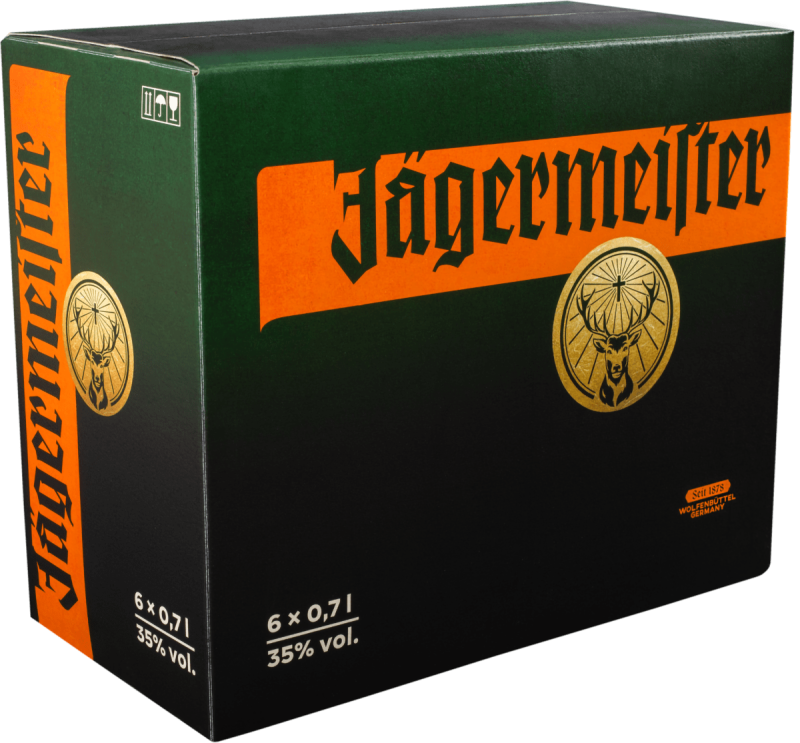
- Based on 19.4 million cartons, the conversion saves 249 tonnes of CO2 annually compared to the previous carton
- From now on, the shipping boxes will be sourced from four family-owned companies in Germany
By switching from solid board to corrugated board, the weight of the packaging is reduced by 38.5 percent on average. Combined with an increase in the proportion of recycled paper to over 90 percent, less than half the resources are needed in production. Based on 19.4 million cartons, the conversion saves 249 tons of CO2 annually compared to the previous packaging. For the production of the more sustainable cardboard boxes, Jägermeister will in future work with four family businesses from the region.
“The innovative strength of the new local suppliers – in addition to the excellent, interdisciplinary collaboration internally – has led to the success of this project. It starts with the selection of recycled paper and ends with production on highly efficient machines,” says Carsten Doliwa, Senior Director Procurement at Jägermeister.
“So that future generations can also enjoy the best nights of their lives, we must and will make our contribution to an intact environment. The new cardboard boxes bring us one step closer to our goal of reducing and optimising the resource consumption of all our packaging,” adds Sandra Broschat, Senior Director Sustainability at Jägermeister.
The first cardboard boxes have already been processed in production at the beginning of 2023, so the worldwide conversion will take place successively from now on. The design of the cartons remains unchanged.
The well-known Jägermeister bottle label with the stag has already been made of 100 percent recycled paper since 2021. The adaptation of the transport packaging is now the next logical step.







